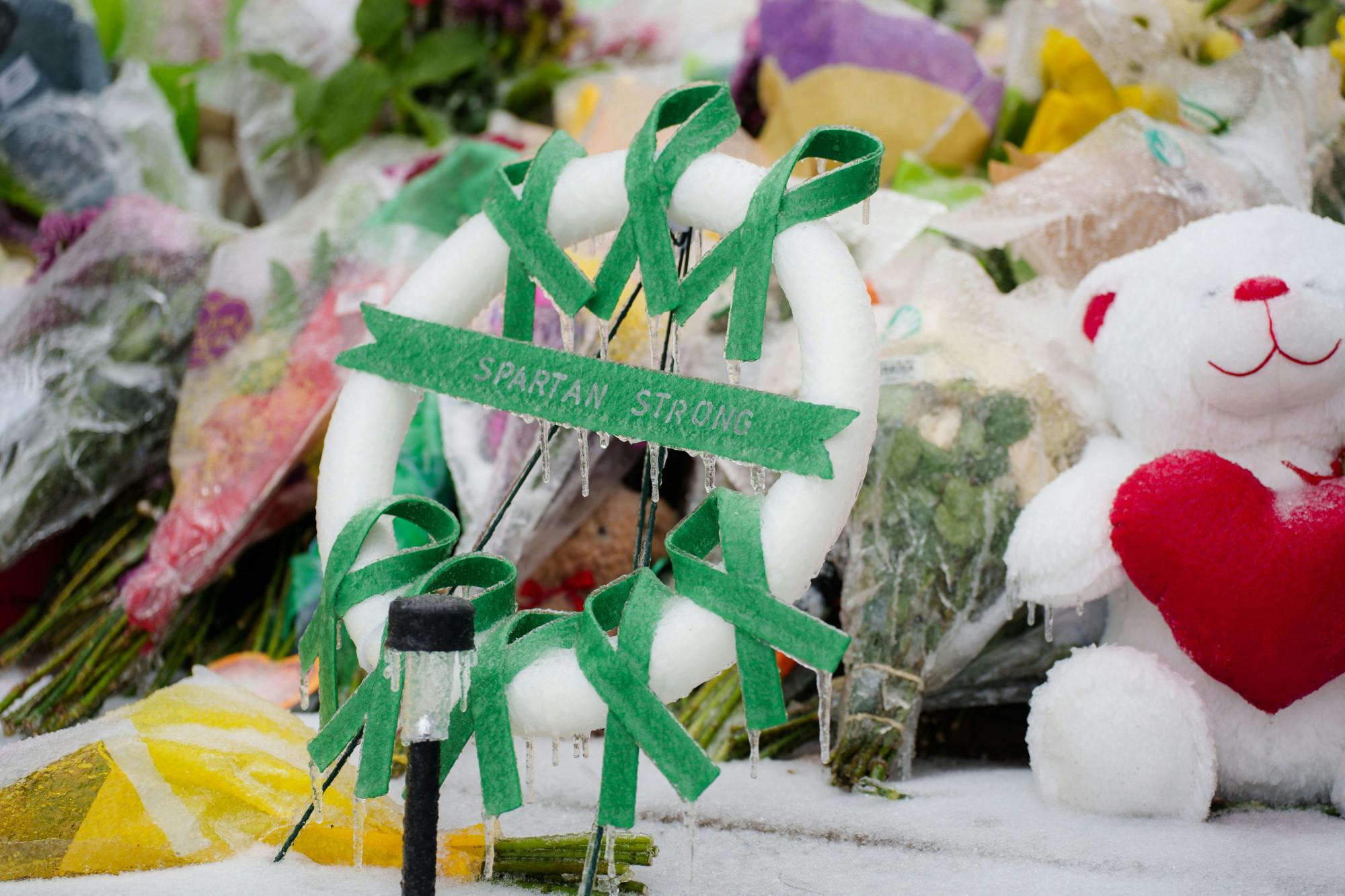A post-shooting healing event, organized by two students in collaboration with MSU and the MSU Museum, confused students who interpreted the event as a protest against the university.
Psychology sophomores Hannah Greenspan and Kirin Krafthefer were inspired to put on a community-centered healing event by Krafthefer’s blog Spartan Stronger, which gives students the opportunity to post testimonials about the Feb. 13 mass shooting at MSU. However, the pair labeled the event as a walkout occurring during class hours, which led many students to understand the event as a protest against the university.
“It's not political,” Krafthefer said. “I feel like people need to reel that in. We’re kicking ourselves for calling it a walkout.”
For several students, including anthropology sophomore Erin Willcock, the term walkout sounded like a protest related to gun control or directed toward the university.
“I thought it was more of a demonstration against the university and ... a lot of the inaction that was happening rather than a university-sponsored event,” Willcock said. “Which doesn't like make it a worse thing necessarily, but it does make it a different thing.”
The confusion kicked in when the event was rescheduled to Sunday, March 19 after heavy snowfall on the Monday it was originally scheduled for. Willcock was one of a few students who commented on the walkout’s Instagram page expressing concern that a walkout would occur on a weekend.
“It's labeled a walkout, it’s meant to be a disruption of our schedules and of the class day and of school because … it's specifically an American problem that we have school shootings,” Willcock said. “In my brain, it's supposed to be about the school setting, in that aspect.”
The event had been planned in collaboration with the university who would be providing sound systems, tables and materials. When Greenspan and Krafthefer saw the need to reschedule because of the weather, they originally decided on Wednesday, March 15, but were told the university couldn’t support them with materials if the event potentially interrupted two school days, leading the pair to reschedule for a weekend.
“(Greenspan and Krafthefer) reached out to me and cleared things up and let me know that it was partially school-sponsored and school-sanctioned so that's why they had to work with the university and reschedule it to a weekend,” Willcock said. “Which goes against the going against the organization and making a statement about the institution.”
Greenspan and Krafthefer said the miscommunication centered around the purpose of the event, which was never meant to be a protest against the university. They said there was no point during the organization of the event where they felt limited by MSU.
“Some people think we're like university puppets right now,” Greenspan said. “This is with the support of the university, not at the restraints of the university. They have been so incredibly supportive and just given the reins to us.”
The original purpose of using the term walkout was to reference the way in which students would attend the event, Greenspan said. For her and Krafthefer, the term referred to the conscious choice to take time out of their normal routine and dedicate it to remembering Feb. 13.
“You're not walking out of a class but you're still choosing to walk out of something,” Krafthefer said. “Whether that's a coffee shop, whether that's a dining hall, whether that’s a sporting event, all of these things are still happening. ... We're walking out of what we had originally said, which was our daily lives.”
The event had also been labeled as non-political. For Greenspan and Krafthefer, this meant it wasn’t meant to make a political statement regarding gun violence. Willcock said the topic can’t be addressed in a non-political way.
“No matter how they state it's non-political, it’s going to be because it's about our student life and about gun control and reform, at the very least,” Willcock said. “Those things are inherently political. ... You can be nonpartisan … but I don't think there's a way to have any kind of protest or demonstration in that manner and have it not be political.”
The rescheduled event will be held at 2:13 p.m. on Sunday, March 19 at Demonstration Field. Krafthefer said it was a top priority to ensure it was trauma-informed, as the ultimate goal was to create a space for healing. Counselors from Counseling and Psychiatric Services, or CAPS, will be attending with therapy dogs. The itinerary was influenced by advice from CAPS.
After a short speech from Greenspan and Krafthefer, index cards will be available for students to record their experiences from Feb. 13. All of the cards will be preserved in the MSU Archives and, with permission, will be temporarily displayed in an exhibit inside the MSU Museum.
“Why we want to do this in a way that's recording and in a way that’s processing is because when you process and when you tell your story of trauma, it moves from the emotional part of the brain to the logical part of the brain," Krafthefer said. "Especially when you do it in a communal setting, it feels safer.”







